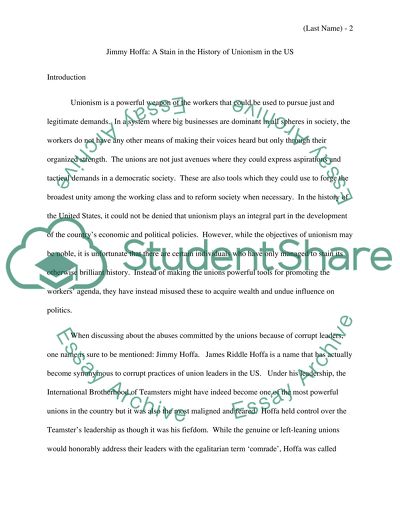Cite this document
(“Jimmy Hoffa: A Stain in the History of Unionism in the US Research Paper”, n.d.)
Retrieved from https://studentshare.org/history/1442033-jimmy-hoffa
Retrieved from https://studentshare.org/history/1442033-jimmy-hoffa
(Jimmy Hoffa: A Stain in the History of Unionism in the US Research Paper)
https://studentshare.org/history/1442033-jimmy-hoffa.
https://studentshare.org/history/1442033-jimmy-hoffa.
“Jimmy Hoffa: A Stain in the History of Unionism in the US Research Paper”, n.d. https://studentshare.org/history/1442033-jimmy-hoffa.


